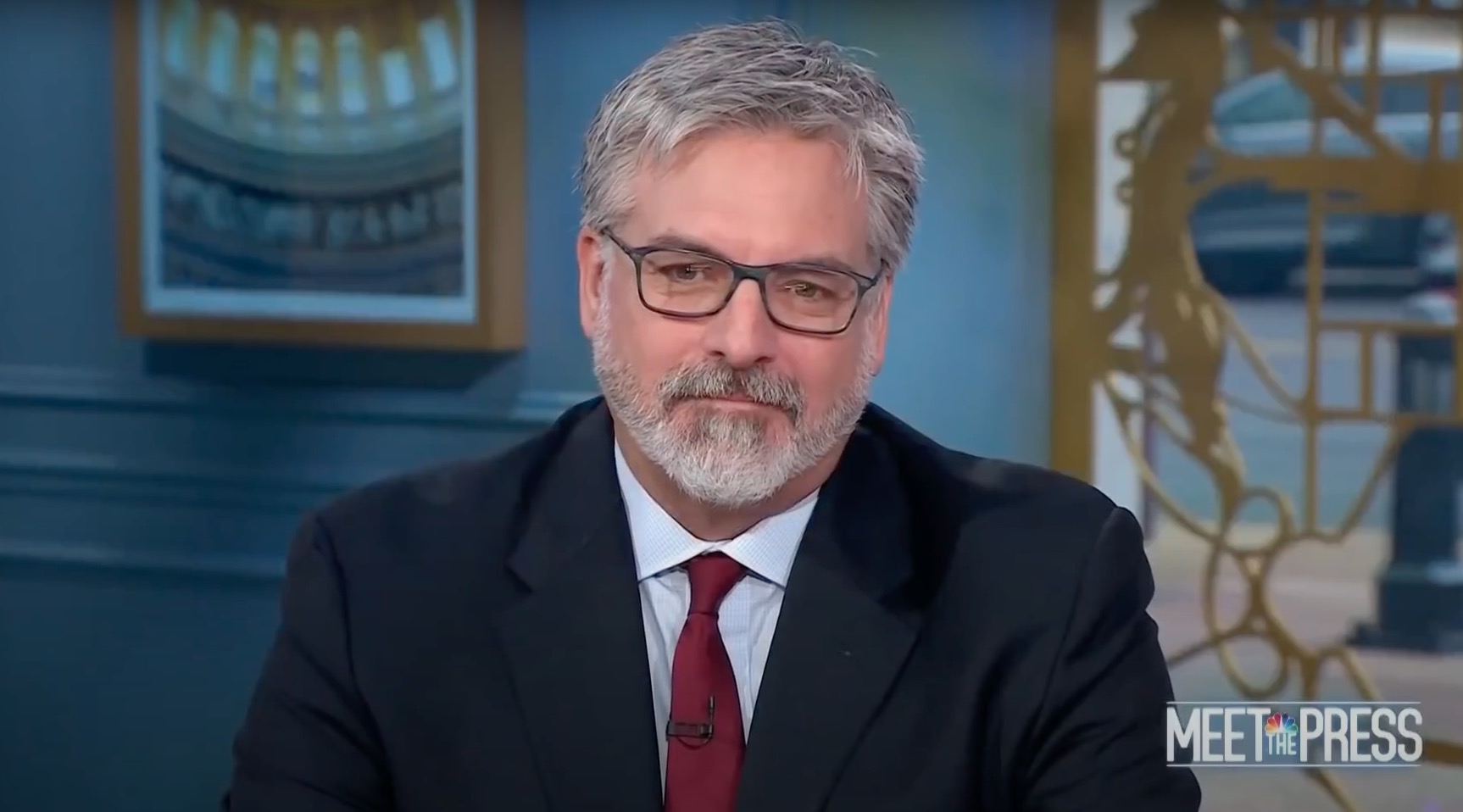The Dispatch’s Stephen Hayes on How to Build a Conservative Media Outlet for the Trump Era

It’s not easy building a conservative media outlet in the era of former President Donald Trump, but that’s the challenge that was embraced by Stephen Hayes and Jonah Goldberg when they founded The Dispatch five years ago.
Now, the company boasts more than 40,000 paying members and 500,000 subscribers to its non-paywalled offerings.
Hayes said in an interview with Mediaite’s Aidan McLaughlin that The Dispatch, which covers politics, policy and culture, is not meant to be a “knee-jerk opinion mongering site” with the latest hot-takes but rather one that “slows the news down and puts a real premium on providing depth, context and understanding” for its audience consisting of paid subscribers (with full access to locked articles) and non-paying readers.
The digital media company is notable among right-leaning sites for not being a Trumpian propaganda machine — a risky business concept when the ex-president still dominates the Republican Party.
At The Dispatch, that means publishing everything from a deeply reported piece on Tucker Carlson and his evolution from well-regarded conservative journalist to major figure on the pro-Trump right, to a reflection on endorsements and the 2024 race from Jonah Goldberg, to a suite of high-quality newsletters and podcasts tackling the big questions in politics and beyond.
Hayes says he feels many conservatives like himself reside in that minority group of Americans who oppose Democrats like Vice President Kamala Harris but can’t stomach Trump and what his return to power would mean for America. Hayes personally supported Trump’s impeachment (both times) and condemned the Jan. 6, 2021 riot at the U.S. Capitol.
“People are going back to their partisan corners [with the election],” he said. “But we think there are a lot of people who describe themselves or think of themselves as politically homeless, and they’re not so attached to a red team or a blue team. They’re looking for intellectually honest, smart, thoughtful reporting and commentary. And that’s what we provide.”
Support for Trump among self-identifying conservatives has been difficult to gauge, especially as Nikki Haley received substantial support in the primaries but ended up losing as the party coalesced once more around Trump. Now, they are uncertain about the choice.
“I think what we’ve got in our audience is people who take a look at the [party candidates] and in general are frustrated by where the country is in terms of political leadership,” Hayes said. “And many of them will be casting frustrated votes for any of those characters or maybe writing somebody in.”
Gallup poling has found that independent identification has grown drastically since 2009. Forty-one percent of people say they are politically independent, outnumbering Republican and Democratic identifiers (each at 28 percent).
The Dispatch’s success is essentially proof of concept for Hayes.
Initially, the digital media outlet was founded with an event-focused mindset but quickly pivoted as Covid-19 struck within six months of its launch date.
They instead entered a successful 2.5-year partnership with Substack (in which they agreed to be Substack’s “guinea pig,” Hayes said, with an experiment of how to build a media company on the platform) before striking out on their own.
Having left Substack in 2021, Hayes said the media outlet is in “growth mode” and are pushing their way back to profitability within, they estimate, the next year.
Hayes and his co-founder, Goldberg, both served as contributors at Fox News until 2021, when they quit in protest of the direction of the network. Both pointed to the release of “Patriot Purge,” Tucker Carlson’s conspiracy-filled special about Jan. 6.
Hayes said the series was antithetical to what they were trying to build at The Dispatch.
“Jonah sent me the trailer [with] a note that said, ‘What is this?’ I forwarded it to … the powers that be at Fox and said, ‘What in the world is this? Is this thing real? Is this going to air?’” Hayes told Mediaite. “I certainly don’t think of myself as a prima donna … as somebody who makes threats or pounds the table. But I said, ‘If the trailer is representative of what the documentary is, and it’s going to be 60, 90 minutes of these kinds of outrageous claims, I can’t imagine that I could stay at the network.’”
“The executives at the network were surprised that this Tucker documentary existed,” he recalled. “They didn’t know it was coming. They hadn’t screened it. And then the question … [became], would they step in and say, ‘This doesn’t meet our standards,’ or would they allow the most powerful person at the network to do what he was going to do with the thing?”
“And they let it go,” he said. “We just said we can’t stick around.”
Fox News would go on to fire Carlson soon after. He has found success independently, launching a media company based around a video podcast that appeals to conspiracy-minded supporters of Trump. Hayes noted the popularity and financial success Carlson has garnered by promoting such conspiracy theories, a notable contrast to the non-conspiratorial audience The Dispatch continues to target.
It remains to be seen how the 2024 election and a possible four more years under Trump as president could shape the readership of The Dispatch as it continues to expand and grow an audience among the politically homeless. Given the state of the two major parties, a refuge for the unsatisfied might have a bright future.






